In the past decade there has been a huge increase in the level of corporate involvement in skateboarding, and we may be returning to a form of skateboarding that Steve Rocco, Mike Vallely, Mark Gonzales, and others desperately tried to escape in the early 1990’s.
New members within the skate community, like Eric Wiseman, Phil Knight, Herbert Hainer, the Maloofs, Gary Ream, William Sweedler, Neil Cole, and Andrew Kline, are all challenging what it means to be a skateboarder and how we skateboard. These men (that have probably never stepped foot on a skateboard) run or are the money behind VF Corp [Vans], Nike, Adidas, Maloof Money Cup, Woodward, Sequential Brands [DVS], Iconix [Zoo York], and Park Lane Sports Investment Banking [Street League]. Through their economic capital, and power outside of skateboarding they have been able to force their way into powerful positions within skateboarding and are able to directly profit off of our activity. Should we care if non-skaters are allowed to hold powerful positions in our culture? Should we care if skaters associate with these people and buy their products? Will it change how we skateboard, how we view ourselves, and how we view the world?
Of course! As skateboarders we all share social space and none of us exist in a vacuum (in some way all of our actions affect the skate culture as a whole and every skater within it). Within this social space our collective actions have produced and emphasized how important creativity, autonomy, cooperation, and fun are within skateboarding. These values make up the dominant ideology within skateboarding, which shapes our identities, how we view the world and how we act within it. But as more and more corporations enter the activity, they are challenging and attempting to shift the dominant ideology and performance of skateboarding into something that allows them to rationally fulfill their sole purpose: the pursuit of profit. If they are successful it may not change the ideology or performance of skaters like myself that have been involved in the activity for many years, but it will change the ideology, the space, and economics of skateboarding for younger skaters, and alienate older skaters from a social world they helped create and maintain until it was invaded by and sold to outsiders.
Many of these outsiders are attempting to run skateboarding with the same principles that drive many modern corporations, which are completely incompatible with street-skating as we know it. As George Ritzer points out in The McDonaldization of Society, businesses attempt to operate in an extremely efficient fashion. They focus on making everything quantifiable (skatemetrics) rather than focusing on creating subjective quality (“best” video part), they want everything to be predictable (i.e. standardized, the same experience every time), and they want all aspects of a business or activity to be easily controlled, basically the antithesis of what skateboarding is today. As the corporation’s values become more and more apart of skateboarding and influence the ideologies of individual skaters, the greater the potential that our activity will fundamentally change. Skateboarding won’t be like the activity we all know today, instead it will have an ideology and a performance similar to that of football, or, as Rob Dyrdek is praying for, the UFC.
If corporations continue to gain influence within our culture the dominant form of skateboarding may move from the streets, where it is difficult to control or directly profit off of, into the contained space of the park. Additionally the skate video may also fall to the wayside. Why spend the money to send a skate team to Barcelona for three weeks to film ten tricks, when you can fly one skater to Gilbert, AZ for a couple of days and have your logo seen throughout the world on ESPN?
Instead of inefficiently, creatively, and collaboratively creating skate videos, skaters will efficiently and competitively enter into the highly predictable, standardized, quantifiable, and controllable world of mega-contests. In this social-world, there is no time for a skater to push himself spending hours trying to land a trick, because it is inefficient. There is little room for creativity (i.e. no backside 50-50 finger-flip) because, “it isn’t good strategy.” And there is no reason to seek out new skate spots as it more efficient for all skate contests to take place in the same stylized spaces. Whether you are in Gilbert or Toronto you can watch Chaz Ortiz jump down the exact same 10 stair. If corporate skating begins to dominate there will be little room left for the skating that Louie Barletta, Chris “Mango” Milic, or Jeff Stevens do, there will only be room for the (amazing, but) standardized and predictable skating of Greg Lutzka, Ryan Sheckler, and Nyjah Houston.
”Skateboarding is separating into two poles: one where a few businesses and a very small group of skaters are making lots of money, while everyone else is fucked.”
A strong corporate presence within our culture will change the economics of skateboarding. As we have seen in the past seven years, Nike and Adidas’s presence has escalated the number of skater owned skate shoe companies that have gone out of business, which limits the ability of skaters to influence skateboarding. Skater owned companies are in dire economic situations, not because of natural fluctuations within the skateboard market, but because of the imbalance of economic power within skateboarding that is evident in a post-Consolidunk era.
The entrance of Nike, Adidas, and other mega-corporations, has created a situation similar to what many popular but small coffee shops faced when dealing with Starbucks. Starbucks would open across the street from a local coffee shop, and even if the local coffee shop was doing well prior to Starbucks entrance, the small shops couldn’t afford to operate in such close proximity to a Starbucks “Café,” which could afford to run at a loss, dump huge amounts of money into advertisements and promotions, and do huge amounts of market research on potential customers because of its deep pockets. Eventually the small café would go under, which allowed Starbucks to dominate the local market, not because their product was superior, but because of their economic might (see Naomi Klien’s book No Logo and Ocean Howell’s “Extreme Market Research”).
Corporations are also changing the idea of what skaters think they deserve to be paid, how much profit companies… err shareholders should expect to profit off them, and how little corporations need to invest into the culture as a whole. It has become “common sense” that Chris Cole and other mega-stars deserve to make an average of $40,000 per month, while many pros pull a salary much closer to $2000 a month, or are being dropped in order to pay for the mega-stars contracts. It has become reasonable that the publicly traded corporation Zumiez does hundreds of millions in sales in each year, but doesn’t sponsor one skater.
And we are all amazed that the Maloofs are willing to put up a $500,000 cash prize, when in reality $500,000 is nothing when we consider the fact that the Maloof family is worth approximately 1 billion! 500k is 1/2000 of their net worth. This is the same as if the average American family (net worth 77K) was to “give away” $15 (I put give away in quotes since the Maloofs profit off the Money Cup and do not lose money). It seems that skateboarding is separating into two poles: one where a few businesses and a very small group of skaters are making lots of money, while everyone else is fucked. Sadly, our new ideology allows us to see this as normal, when in reality this is a very unusual state of affairs for skateboarding.
Finally, the large corporations buying, selling, and trading skate companies drastically affects the structure of the skateboard world. We recently saw this when Mark Ecko sold Zoo York to Iconix, who then decided it would improve their bottom line if they abandoned Zoo York’s “skate program” and dumped some of their riders.
Another example of the consequences of skateboard companies being bought and sold as commodities instead of being treated as pillars within the skateboard community is VF Corp’s acquisition of Timberland. VF Corp recently purchased Timberland, which had owned Ipath. A few months before VF Corp acquired Timberland Ipath was sold to Klone Lab, which lead to the restructuring of Ipath and the loss of a good portion of the team (as we see with Birdhouse’s new pro Ben Raybourn, the up-coming ams Ryan Reyes, Ryan Lay, and many others all leaving the company).
Corporations only value skate-companies and skateboarders in relation to how much capital they can generate for a group of shareholders, instead of valuing them as important parts of our culture. In the world of corporate skateboarding, skate-companies and skaters are simply commodities that are meant to be bought, profited from, and then thrown away.
If the corporations continue to increase their hold of skateboarding the ramifications for skateboarding in terms of culture, space, and economics will be huge. Instead of waiting to see Mango’s next creative part, the hijinks of the Baker Boys or the adventure of Wallner’s next skate-documentary we will be stuck watching Alex Klein attempt to sell competitive skateboarding to outsiders and Sheckler win at skateboarding by being the “best”. Rather than being anomalies these skaters will become the norm if we return to the world of corporate skateboarding, and we will end up in a worse spot than we were in the 1980s when Vallely, Rocco, Gonzales, and others all first rebelled against corporate control.
Related Posts
Comments
Popular
-
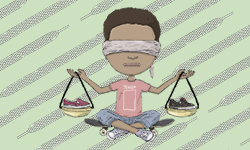 WHAT WOULD MAKE SKATERS DITCH THE BIG SHOE BRANDS?
WHAT WOULD MAKE SKATERS DITCH THE BIG SHOE BRANDS?
We asked younger skaters how small shoe brands could win back their business from the big budget behemoths.
-
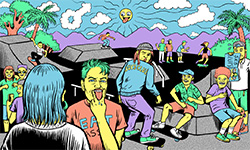 MY EXPERIENCES IN SKATEBOARDING
MY EXPERIENCES IN SKATEBOARDING
"I've been terrified of garnering the reputation of 'ramp-tramp' or 'pro-ho' just from spending time with skaters."
-
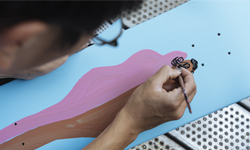 MEET UNITY, SKATEBOARDING’S MOST PROGRESSIVE CREW
MEET UNITY, SKATEBOARDING’S MOST PROGRESSIVE CREW
"Never has my gay life intersected with my skateboarding life. If anything, maybe I’d worked to pull them apart."
-
 WHAT HAPPENED TO GERSHON MOSLEY?
WHAT HAPPENED TO GERSHON MOSLEY?
From punching Andrew Reynolds, to not getting "pimped" by the industry, Gershon covers everything you wanted to know.
-
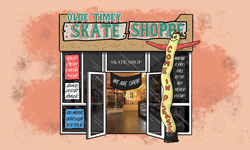 HOW CAN WE HELP KEEP SKATE SHOPS ALIVE?
HOW CAN WE HELP KEEP SKATE SHOPS ALIVE?
For years brands and skaters have blindly cried "support your local," but we asked shop owners about other ways we can all provide actual help.






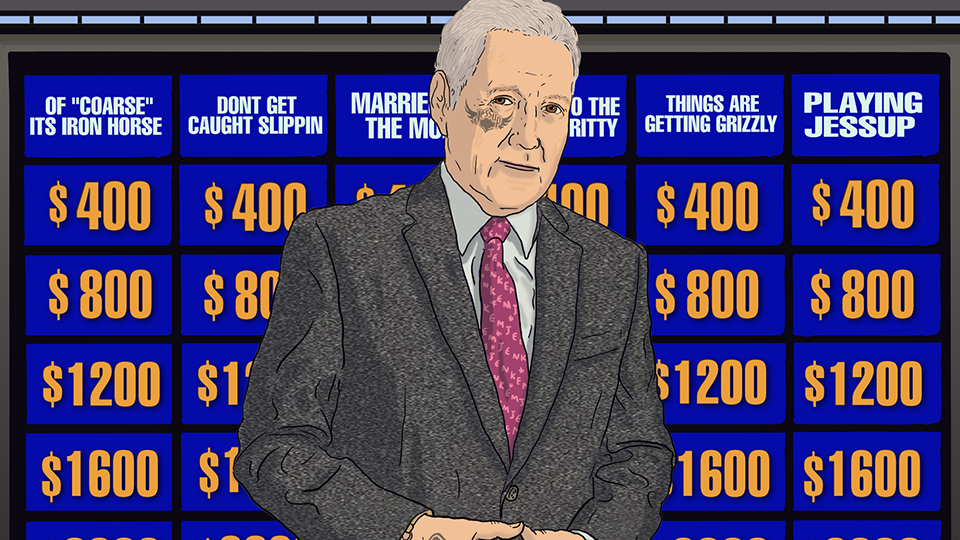
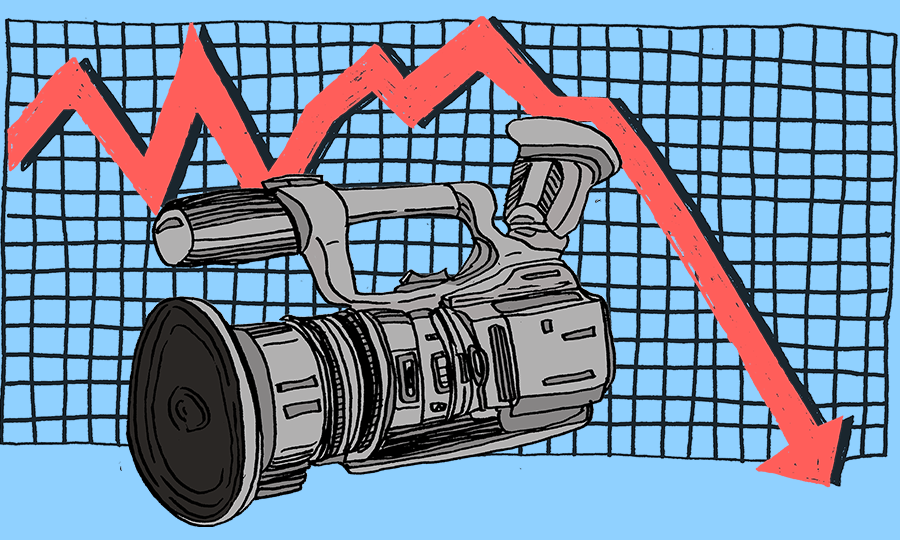
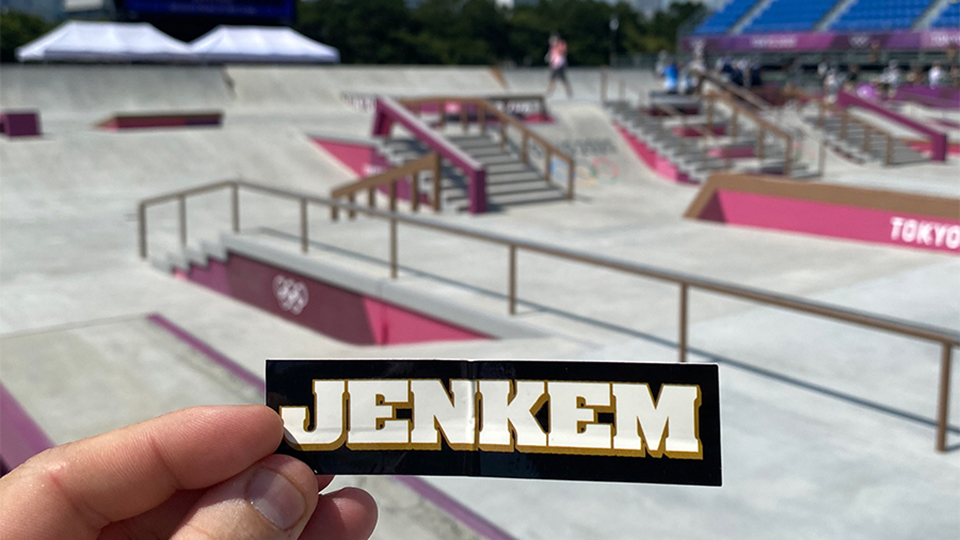
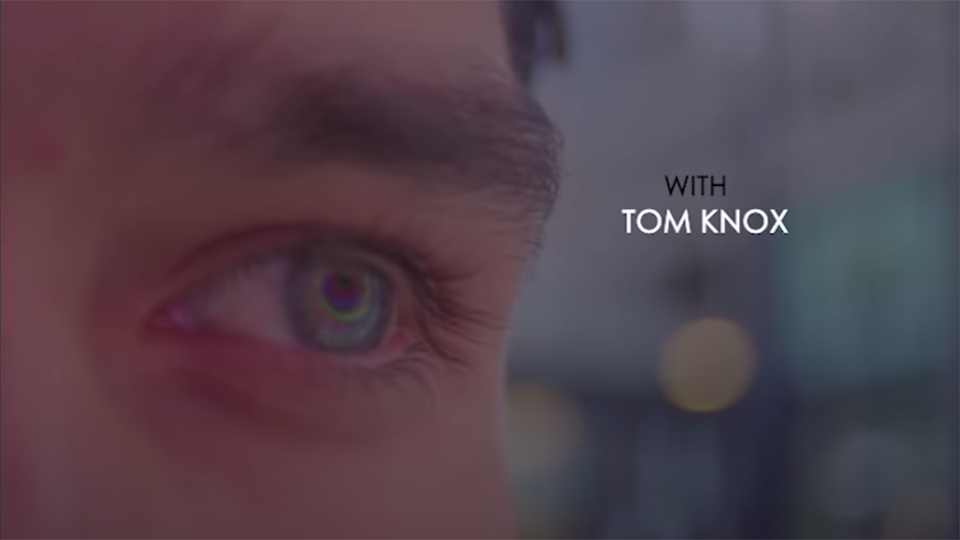

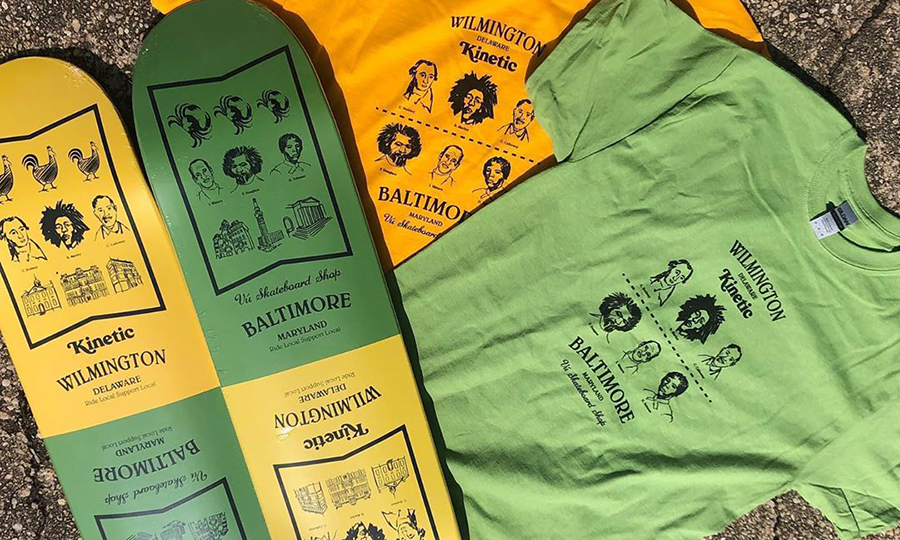

November 28, 2012 7:04 pm
Sylvia has it right. It was skaters that sold out in the first place to even make this happen. In the end money and greed will always rule. Its the american way.
Business is business. Whether you are a skater owned company or not. If you don’t know how to run your shit, you will eventually fail. Did Nike / Adidas really kill core shoe brands or did inferior products at high retail prices do it? Or maybe is was the naive thinking that having a cool team and vibe is all you need to run a million dollar business and sell shoes. or maybe copying the other guys shoe instead of establishing your own style was a mistake. two years ago every brand on the wall looked exactly the same. cheap, vulc vans rip offs with zero heel support. consumers aren’t stupid, make inferior stuff and your coolness will only take you so far.
with regards to how one skater makes 40k and the other makes 2k. its the same in music, sports, art, acting etc. its about how well that skater represents himself. there’s no excuse for not educating yourself before entering into a business arrangement with your skills.
i fully agree that there’s a lot of gross people involved in skating these days. show me an industry that doesn’t have this. if there’s large amounts of money going around, you better believe the vultures will swoop in. skaters and brands have been selling their asses for sometime now and have nobody to blame but themselves.
at the end of the day though. nobody needs the pros, the brands or the hype. they just need a decent skateboard, a pair of grippy shoes and a place to do their thing. i’ve seen it 3rd world countries. kids having a blast on their boards with no idea who maloof, p rod, or any of it. its a beautiful thing and will always remain.
November 29, 2012 5:39 pm
I agree with everything in this article except one thing, the SHIT TALKING on skateparks. The standardizing of skateboarding makes me sick. You see I’ve been skating for 25 years now & have been a huge proponent creative skating. It has influence every aspect of the way I choose to ride a skateboard and even the way I look, music I listen to, and general attitude. What I don’t understand is why is creativity always considered to be only in the streets. I skateboard everything whether it’s a wierd manual pad at the local school or the spine ramp at my park…….. to be honest most of the time I’m more creative on something like the spine. Last time I checked there’s nothing standard about a kickflip no-comply hang-up over a spine. The real problem isn’t skateparks! So why always try and lump them in with all the down & dirty bad business of mainstream culture. Skateboarding is all about being creative no matter where you are skating……. not all skateparks have metal quarterpipes exactly 5′ high & 8′ wide with exactly 1 1/2 inch steel coping nor do they all have that “perfect” seven stair where each step is exactly 4″ tall. To say there is no creativity in skateparks or skatepark skating is preposterous…….. and I know, I know the educated few realize this, but that is exactly the problem you are talking about in your article…… kids don’t understand shit! So why confuse them with this nonsense again and again…. just leave skateparks out of these conversations. To finish up my statement I would like to mention Ben Krahn, Chet Childress, Louie Barletta (you mentioned him too,) Ben Raybourn, Pedro Barros, Cody Lockwood ect. ect. ect. ALL of these guys do some there best and MOST CREATIVE skating in skateparks….. so do people with the ideology that skate parks evil really think all these guys suck at skating???? Didn’t think so. Thanks, Glenzig
November 29, 2012 5:54 pm
Everywhere I turn, I hear “Nyjah won again” or “I love wearing my new Nike Janoski’s” . These corporate rats are hurting us badly. They’re as cunning as vipers too. They influence our media (Thrasher is regularly sponsored by Monster/ Transworld is owned by the Ponnier Corporation). I don’t mean to come across as a prophet of doom but the future looks bleak. Corporations are hazardous for raw cultures. Don’t believe me? Listen to modern-era so-called Hip Hop. Rappers that possess real, legitimate skill are out in the cold (eg. MC Juice & Immortal Technique) . Now we’re stuck with the likes of Lil’ Wayne!
The suits are like pimps. They use, abuse, profit and then discard their prostitutes! We’re not prostitutes, we’re skaters.
November 29, 2012 8:32 pm
Great article. While I don’t necessarily agree with the everything said, I think it is a well stated point of view and that all skaters should at least be aware of ultimately who owns what in skateboarding. And not just in regards to large corporations. Small, private ownerships have had huge influences on skateboarding and skate media.
Just ask why Jamie Thomas didn’t appear in Thrasher for so many years… the fix is in. If you quit my wheel team and I don’t like it, you ain’t getting coverage in my magazine.
I feel there is a place for something like Street League, but it is very disconnected to the actual act of me riding my skateboard.
The bottom line is that corporations exist solely for the purpose of making money. If McDonald’s customers demonstrated that more money could be made by exclusively selling salads, that is exactly what they would do. If a corporation makes more money by giving Chris Cole a fatter paycheck than dividing that money between Puleo, Oyola, and Karl Watson, that’s what there gonna do.
If you don’t like what they are doing, don’t give them your money. Plain and simple. Hit them where it hurts.
If you don’t want to support companies like Iconix, don’t buy Zoo gear.
If you don’t like Think, don’t buy Venture.
If you don’t like Disney, don’t watch ESPN.
But don’t act shocked that corporations are in it for the money.